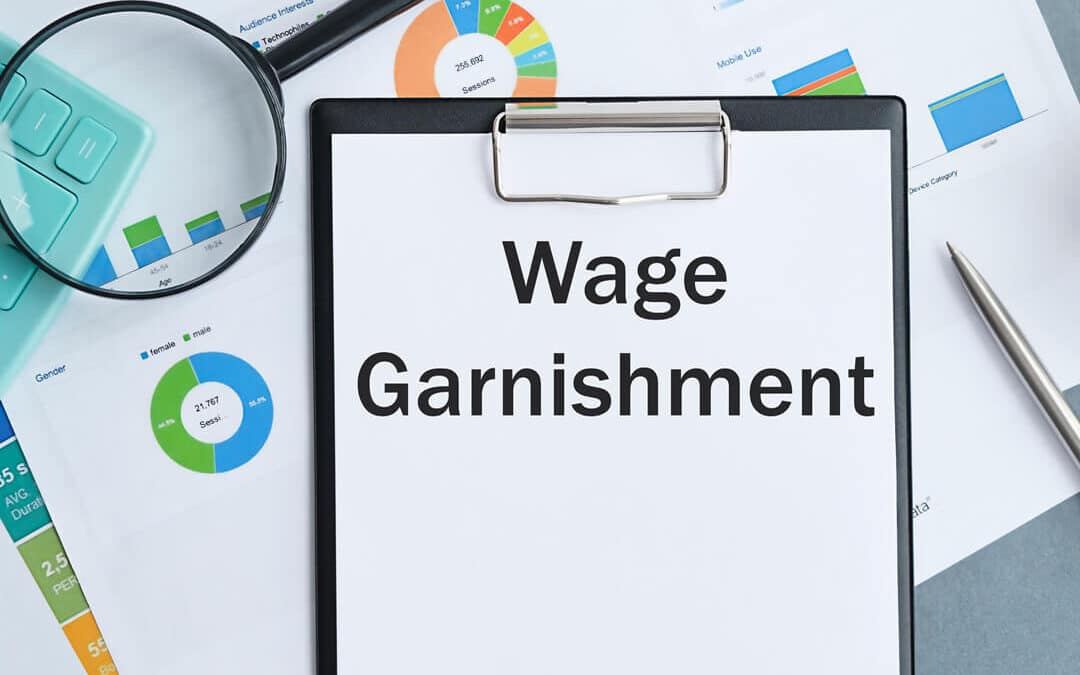When struggling to make ends meet, you may have gotten behind on your monthly debt payments. With the delinquency, the creditor is threatening to sue you. Ultimately, the creditor might obtain a judgment against you. You may be unsure what that means, so let us help you understand.
What Is a Wage Garnishment?
Usually, the purpose of a lawsuit is to obtain a judgment. The judgment is a court order specifying the amount of money that you owe. Once the creditor obtains the judgment, the creditor can garnish your wages.
The creditor must serve you with the lawsuit. Once served, you have a limited time to respond to the lawsuit. If you dispute the debt, the court will set the matter for a hearing. At the hearing, the court will decide whether you actually owe the debt. Ultimately, if you owe the debt, the court will issue a judgment declaring that you actually owe the debt and the amount of the debt. With the judgment in hand, the creditor can issue a garnishment against your wages or against your bank account.
Once the wage garnishment begins, in most situations, it continues the judgment is satisfied. Federal and state law govern the amount a creditor can take from your wages each pay period.
Federal Wage Garnishment Laws
Federal law does not allow consumer creditors to take anything from you if your disposable income is less than 30 times the federal minimum hourly wage ($7.25), which equals $217.50 per week or $942.50 per month. If your income is more than that, federal law limits consumer creditors to taking either 25% of your disposable income each pay period or the amount by which your disposable income for that week, or month, does exceed 30 times the federal minimum hourly wage, whichever is less. Disposable income is income you have left after required deductions from your paycheck, such as income taxes, FICA taxes, unemployment withholding, and mandatory retirement withholdings.
These regulations govern what creditors can garnish from your check to pay most debts, but there are several types of debts in which regulations allow creditors different privileges. If you owe child support, federal student loans, or unpaid taxes, the government can garnish your wages without getting a court judgment and the amount that can be garnished differs from what it is for consumer creditors.
Alabama Wage Garnishment Laws
State laws can have different regulations governing wage garnishments. Some states offer debtors more protections than federal law, while others offer fewer. Alabama wage garnishment laws follow mainly along the same lines as the federal regulations, with a few exceptions. The most notable exception comes under section 204 of Article X of the Alabama Constitution. This is an amendment made to the Alabama Constitution in 1991 which exempts the first $1,000 of each pay period from wage garnishment as long as the money is needed to pay living expenses. Before this amendment, only $1,000 of wages for the entire month were protected.
Besides this extra protection, Alabama provides additional protection from your employer penalizing you because of a wage garnishment. Federal regulation only says your employer can’t fire you if you have one wage garnishment but does not offer protection if you have multiple wage garnishments. In contrast, Alabama law says that your employer can’t fire you or refuse to hire you because you have one or over one wage garnishments (Ala. Code §§ 15-18-142, 15-18-143).
Getting Help Fighting Wage Garnishment
When a creditor sues you for a judgment, you may feel overwhelmed and confused by this legal process. Don’t discount your options with bankruptcy. Bankruptcy can help you stop wage garnishments and other creditor actions against you. This can give you valuable time to get your finances in order and help you return to financial stability.
If you find a creditor is suing you or has already gotten a judgment against you, we can help you fight back. We have the legal understanding of the system and have the tools to effectively support you in filing bankruptcy. We have been helping clients for over 25 years successfully fight against wage garnishments.
If you have questions about wage garnishment, you can contact our office today. We offer free initial consultations, so you can get answers to your questions and plan an effective financial fresh start.

